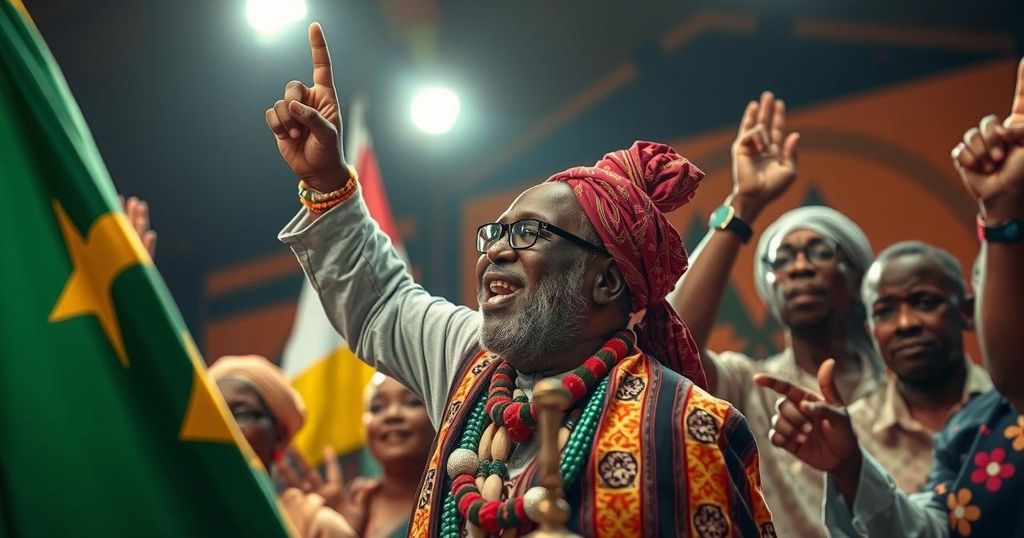Somaliland Opposition Leader Abdirahman Mohamed Abdullahi Wins Presidential Election

Abdirahman Mohamed Abdullahi, of the opposition Waddani Party, won Somaliland’s presidential election with over 50% of votes. His campaign focused on democratic reforms and addressing economic issues, while incumbent President Muse Bihi Abdi received just over 30%. The election has raised hopes for better relations within Somalia and neighboring countries amidst political tensions regarding agreements with Ethiopia.
Abdirahman Mohamed Abdullahi, the leader of the opposition Waddani Party, has emerged victorious in the Somaliland presidential election, securing over 50% of the votes according to the electoral commission’s announcement. Having previously served as the parliament speaker in 2005, Abdullahi, aged 69, campaigned on a platform advocating for democratic reforms and the enhancement of social cohesion within the region. His administration promises to address economic development and youth unemployment in Somaliland. Incumbent President Muse Bihi Abdi of the ruling Kulmiye Party, who sought re-election after seven years in office, garnered slightly more than 30% of the vote. During his presidency, President Abdi focused on efforts to achieve international recognition for Somaliland, which declared independence from Somalia in 1991 amidst civil unrest. The recent election, which had been postponed twice since 2022 due to funding challenges and other factors, signals a momentous political shift. Somaliland has maintained a functioning government, a stable currency, and effective security systems despite not being internationally recognized. This contrasts sharply with the ongoing security instability faced within Somalia. The political landscape in Somaliland has been further complicated by its recent agreement with Ethiopia, allowing Somaliland access to the Indian Ocean in exchange for recognition. This arrangement has generated tensions with Somalia, which accuses Ethiopia of infringing upon its territorial integrity. The Waddani Party has expressed concerns regarding this memorandum of understanding, questioning the lack of tangible economic benefits for Somaliland. Mohamed Husein Gaas, director of the Raad Peace Research Institute in Mogadishu, remarked, “Waddani Party have raised concerns about the MoU’s lack of tangible benefits for Somaliland, particularly in trade and regional support.” Reactions from Somali leaders following the election have revealed hopes for improved relations with Somaliland. Former Somali Prime Minister Hassan Ali Khaire expressed on social media his aspirations for the new administration to embrace “a path of peace, development, and democracy, and take a leading role in strengthening the brotherhood and unity of the Somali people.” Additionally, the President of Djibouti, Ismail Omar Guelleh, extended his congratulations to the newly elected president of Somaliland.
Somaliland, which proclaimed independence from Somalia in 1991, has established a stable political environment amid the political and security turmoil experienced by Somalia. It has its own government and security structures, although it remains unrecognized internationally. The region’s internal governance has led to relative peace and order, making it a focal point of political developments in the Horn of Africa. The recent election signifies a pivotal moment for the region’s governance and its future direction, especially in light of evolving relations with neighboring nations like Ethiopia.
In summary, the victory of Abdirahman Mohamed Abdullahi in the Somaliland presidential election represents a critical juncture for the region, highlighting its ongoing commitment to democratic governance and economic rejuvenation. The political shift underscores the aspirations of the Somaliland population for improved internal conditions and regional relations, especially amid the contentious negotiations with Ethiopia. The outcome of this election may pave the way for enhanced cooperation and development within the broader Somali context.
Original Source: www.seattletimes.com





